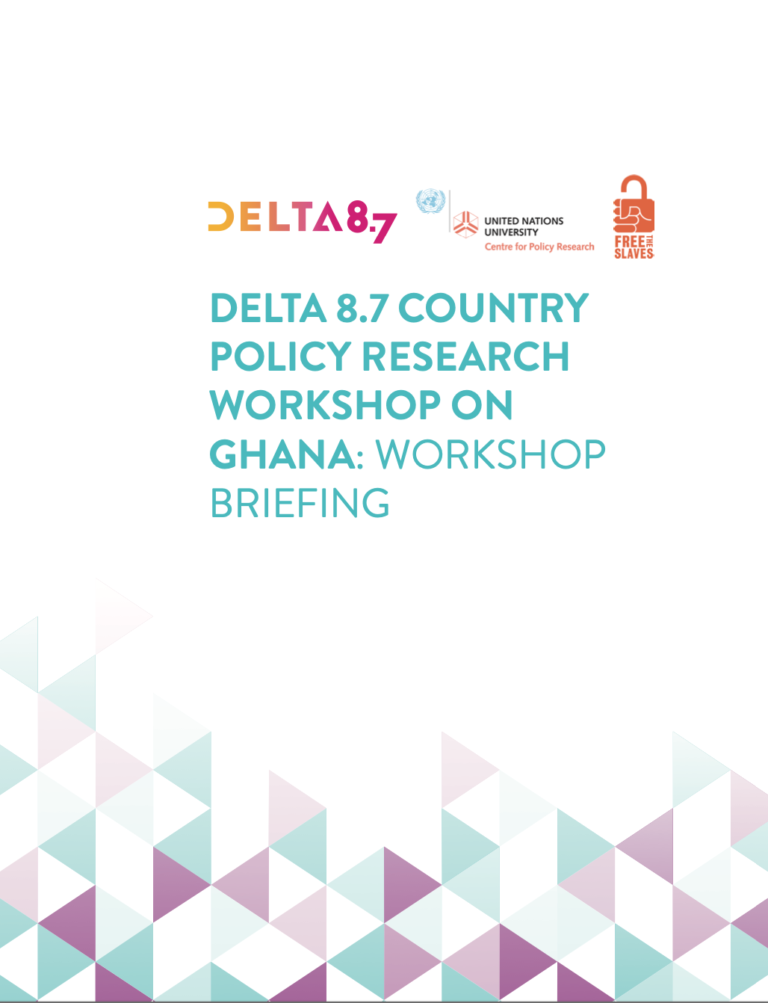On 15 December 2021, the United Nations University Centre for Policy Research project Delta 8.7 hosted a Country Policy Research Workshop. This fourth workshop focused on Ghana, bringing together policymakers from the Ministry of Gender, Children and Social Protection; the Immigration Service, International Organization for Migration, United Nations Office on Drugs and Crime and UNICEF, as well as members of the private sector, civil society and researchers from Ghana and elsewhere for a closed- door discussion of “what works” to combat child labour in Ghana.
Over the last year, UN Member States, regional organizations and civil society have been working to raise awareness on the issue of child labour and share best practices in support of the International Year for the Elimination of Child Labour. As this year ends, and at a time when the Ghanaian Government is strengthening its efforts to combat modern slavery through its commitment as a Pathfinder country and development of a number of new National Plans of Action including for the Elimination of Human Trafficking and Child Labour, this workshop provide an opportune moment to discuss what national policies are needed to accelerate progress towards the elimination of child labour. The workshop comprised five sessions – the themes were identified following in-depth interviews with workshop participants. These themes were:
- The modern slavery-environmental degradation-climate change nexus
- Child labour in the cocoa industry
- Child labour in the fishing industry
- Social protection measures and access to education in the wake of the COVID-19 pandemic
- Prevention and rehabilitation

